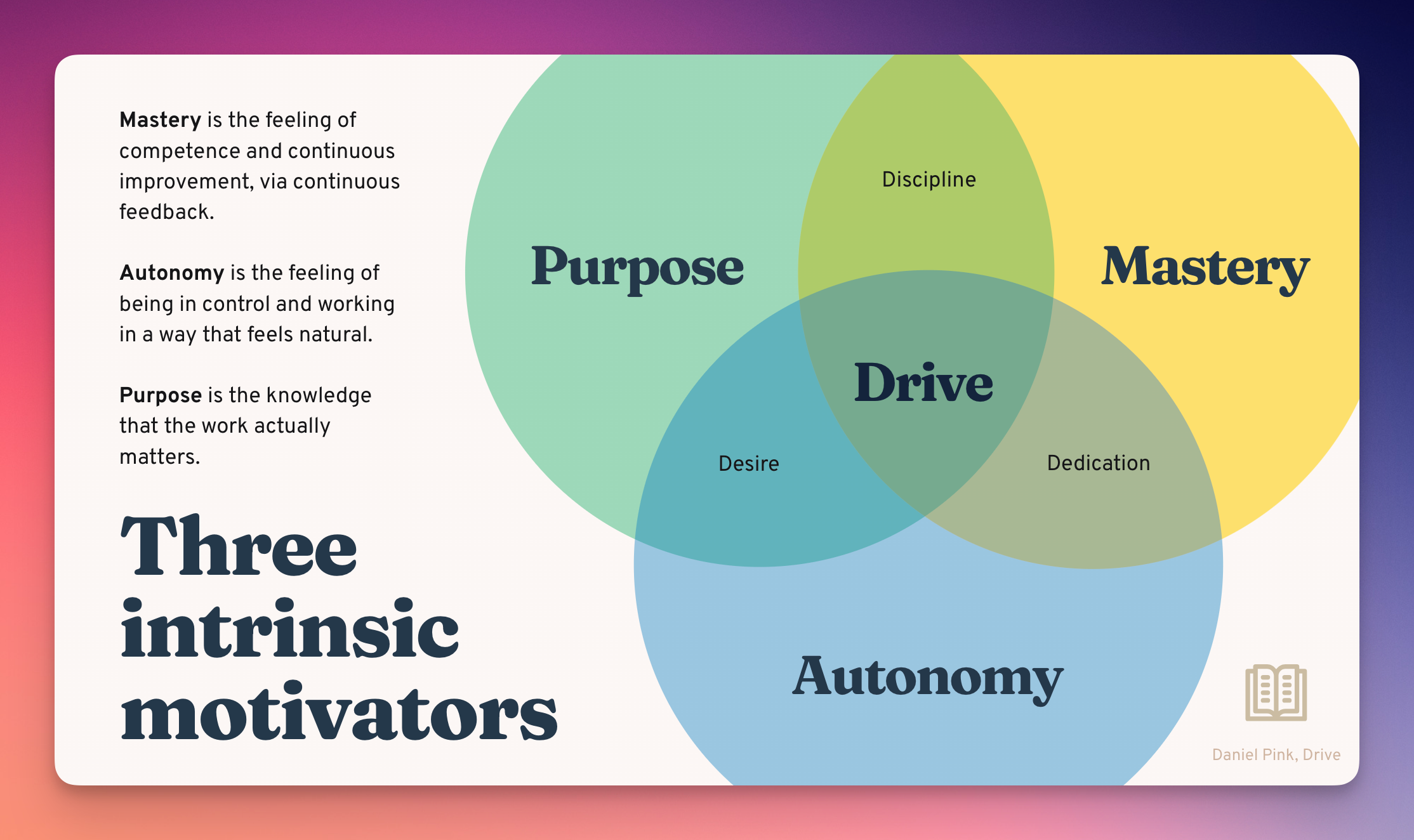Follow my interview on BBC Radio last week, i’ve been thinking more about job quality, and our motivations for work.
There’s a really good piece I came across here which outlines some principles around extrinsic motivation (an external driver such as financial reward) and intrinsic motivation.
What’s interesting – as set out in the RSA video above – is that extrinsic motivation only really works when the task is a repetitive, routine one. As soon as you throw in something cognitive or problem-solving, the site of motivation changes, and what becomes important are the intrinsic dimensions. These are summarised as:

What’s interesting about this is that in AI-world, it is the cognitive load that is under threat. If AI is taking that from us, our motivation is also changing… and if that’s not going to be matched in increased extrinsic reward, we’re in trouble and are likely to become demotivated.
So these questions around how we deploy technologies really do have impacts on our sense of purpose and satisfaction. But we can get this right, if we do the deployment right.
This week I’m speaking at the EY Foundation about some work we’re partnering on around young people, ‘good work’ and engaging them in the economy. What we’re seeing is that many young people are doing routine jobs just to make some money… but are actually highly motivated on their ‘side hustle’. From an employers’ perspective, this is crazy: you are missing out on people’s creativity and energy, and innovation too. If that passion can be tapped into, that’s great for everyone. But – as I talked about the previous post on overqualification, that requires some rethinking about making jobs better.
These touchstones from the article are worth thinking on:
Statements a high-autonomy employee would strongly agree with:
- “I have the freedom to make decisions about how I accomplish my tasks.”
- “I am encouraged to bring my unique perspective and ideas to my role.”
- “I feel that my individual working style is respected and valued.”
- “I am able to influence decisions that directly affect my work.”
- “I have sufficient control over the way I carry out my tasks.”
Statements that mastery-motivated people might agree with are:
- “My role offers opportunities to learn new skills and develop my abilities.”
- “I receive regular feedback that helps me improve my performance.”
- “My job challenges me to grow and step out of my comfort zone.”
- “I am recognized or rewarded when I master a new skill or improve my performance.”
- “I feel confident about my ability to perform my job well.”
Statements a purpose-oriented person would strongly agree with are:
- “I believe my work significantly contributes to the overall success of the organization.”
- “The work I do aligns well with my personal values and beliefs.”
- “I feel a strong sense of purpose and meaningfulness in my role.”
- “The tasks I perform in my job create a positive impact on others or society.”
- “The mission and values of the organization resonate with me.”
If we don’t get motivation right in this age of AI… that’s really not going to be good for our future as a society. And getting work ‘right’ for more people – not just making it pay for the few – is key to that.